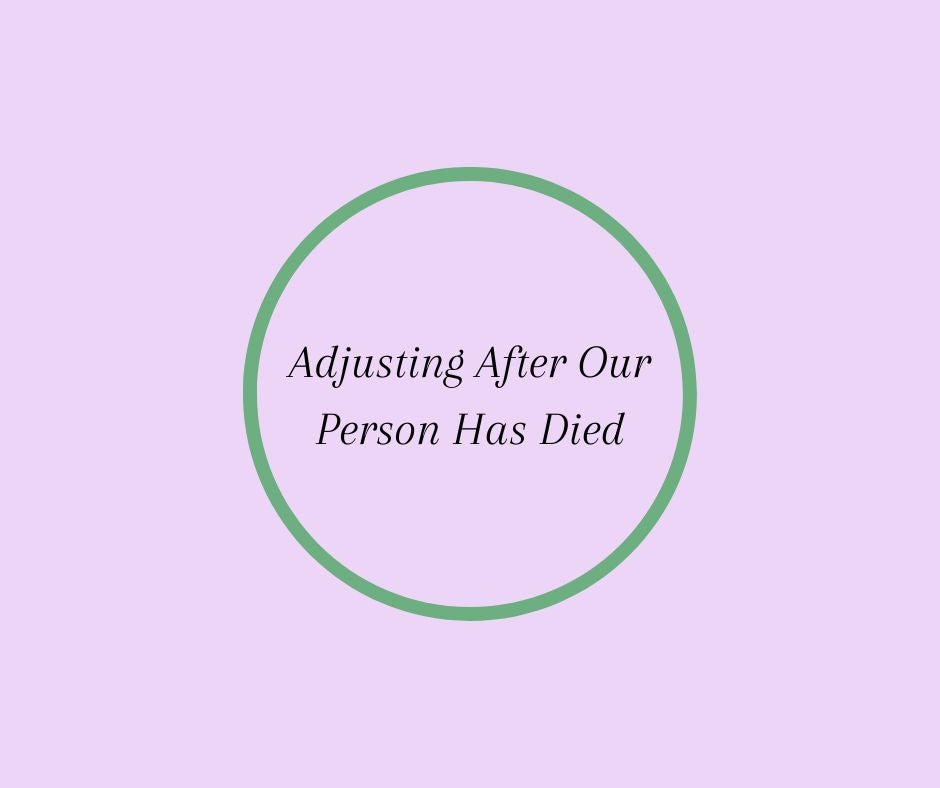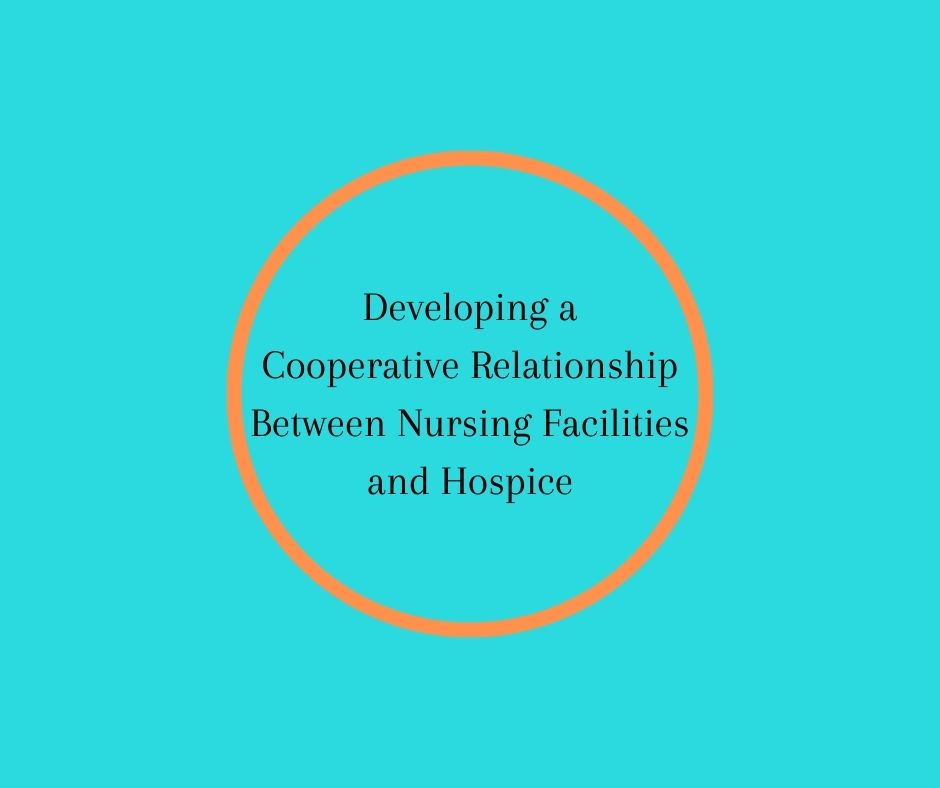Where does someone go who doesn’t have anyone to care for them as end of life approaches?
Most people, when told they can’t be fixed, believe they will stay at home, alone if necessary, and die in their own bed. Unfortunately, as death approaches none of us will be able to take care of ourselves. There will come a point when we will need assistance. We probably won’t even be aware we need assistance, but we will.
The above question, “Who will take care of us when we can’t take care of ourselves?” is part of the current medical/ social dilemma facing Americans today. The first thought is that husbands, wives, children, brothers, sisters will fill that role. However, not everybody has a family to care for them, and many peoples' families CAN'T take care of them. The second thought is “I’ll be in the hospital,” although in reality this is unlikely. A nursing facility is generally our last thought, but not everyone has the finances to hire in-home care or to enter residential care facilities.
Yes, those on Medicaid can enter assisted living or nursing facilities. But what about those people that fall in between; those with too many resources for medical assistance but not enough to pay the high cost of residential care?
Some give away their assets, buy everything they have always wanted, and then apply for medicaid so they can enter assisted living or residential care. Some have a helpful neighbor or friend, but that is an exception.
Enter hospice, a hospice with a hospice house. Hospice comes with a social worker who can help figure out and facilitate a program of care by exploring community resources. Hospice has volunteers who will visit, do errands, and provide assistance. In the last week or so of life, the hospice may be able to admit you into their hospice house and you could die there. That’s a big maybe, but certainly a possibility.
Bottom line: our healthcare system doesn’t really address end of life care for someone living alone. Dying truly takes a village and for some that village is thinly populated.
Something More… about “Who will take care of us when we can’t take care of ourselves?”
It is important for all of us to educate ourselves on what end of life care entails. If we anticipate being alone or with very little help, we need to plan well. To understand the dying process I encourage you to read The Final Act of Living.
From Rita B.
"I wish I had known about this book while my husband was sick. Everyone should read this. There is so much information that is sorely needed when a friend, loved one or oneself is facing death. It could have prevented a lot of anguish."








2 comments
Melanie
Thank you, Barbara, for addressing and educating us on this topic. I learned the hard way when I cared for my older brother who passed away from prostate cancer. He didn’t seek treatment until the last two months of his life and unfortunately, he was already in the dying phase. He was admitted to the hospital but once they figured out he was dying and couldn’t cure him, they kicked him out into a nursing care facility where I found out – insurance wouldn’t pay. Try to explain this to a very ill, proud, and retired lieutenant who served and risked his life for over thirty years working for a California sheriff’s department. He didn’t understand and kept telling me he had insurance. He was also waiting for an official diagnosis so he couldn’t enter the local, beautiful hospice house in Cody, Wyoming until he had a diagnosis, so he had to stay too long in the nursing home. I also found out that if he was admitted to the hospice house, it was on a cash pay because insurance would not cover the stay. Bottom line – he made too much to qualify for a medicaid nursing stay and hospice house and not enough for the high priced non-medicaid daily rate of the nursing facility. He also didn’t qualify for medicare because he was only sixty-one. Once I was able to move him to the hospice house, he only lived one night after admittance. But, what a beautiful introduction and representation to hospice and where I found your books. I am now taking care of my mother and she has entered hospice care through medicare. Please everyone – educate yourself on this topic! Thank you Barbara and much love to you – your words have impacted my life immensely. Keep up the work!
———
BK Books replied:
Hi Melanie, Thank you for sharing. I’m sorry to say way too many people have similar experiences as your brother’s. Blessings! Barbara
Thank you, Barbara, for addressing and educating us on this topic. I learned the hard way when I cared for my older brother who passed away from prostate cancer. He didn’t seek treatment until the last two months of his life and unfortunately, he was already in the dying phase. He was admitted to the hospital but once they figured out he was dying and couldn’t cure him, they kicked him out into a nursing care facility where I found out – insurance wouldn’t pay. Try to explain this to a very ill, proud, and retired lieutenant who served and risked his life for over thirty years working for a California sheriff’s department. He didn’t understand and kept telling me he had insurance. He was also waiting for an official diagnosis so he couldn’t enter the local, beautiful hospice house in Cody, Wyoming until he had a diagnosis, so he had to stay too long in the nursing home. I also found out that if he was admitted to the hospice house, it was on a cash pay because insurance would not cover the stay. Bottom line – he made too much to qualify for a medicaid nursing stay and hospice house and not enough for the high priced non-medicaid daily rate of the nursing facility. He also didn’t qualify for medicare because he was only sixty-one. Once I was able to move him to the hospice house, he only lived one night after admittance. But, what a beautiful introduction and representation to hospice and where I found your books. I am now taking care of my mother and she has entered hospice care through medicare. Please everyone – educate yourself on this topic! Thank you Barbara and much love to you – your words have impacted my life immensely. Keep up the work!
———
BK Books replied:
Hi Melanie, Thank you for sharing. I’m sorry to say way too many people have similar experiences as your brother’s. Blessings! Barbara
Brande Rountree
Thank you so much for these blogs. I share these with the staff at my hospice and they love them but I do have a question about this one. I have done Hospice in South Carolina and Georgia. Currently I still live in South Carolina but anyway, Medicaid does not pay for any assisted living in my experience in those two states are there states were Medicaid pays for assisted-living????
My understanding is Medicaid, if approved after they spend down all those things you said is the only government program that will pay room and board in a nursing facility. Before I send this blog to my staff, would you explain this to me thank you so much.
Brande’
———
BK Books replied:
Hi Brandi, I did a Google search regarding your question and here is what I found— Medicaid benefits are “Subject to federal standards, states administer Medicaid programs and have flexibility to determine what populations and services to cover, how to deliver care, and how much to reimburse providers”. This would explain why some states cover assisted living reimbursement and other states do not. Thank you for asking. Hi to your staff and blessings to you all for the good work you’re doing. Barbara
Thank you so much for these blogs. I share these with the staff at my hospice and they love them but I do have a question about this one. I have done Hospice in South Carolina and Georgia. Currently I still live in South Carolina but anyway, Medicaid does not pay for any assisted living in my experience in those two states are there states were Medicaid pays for assisted-living????
My understanding is Medicaid, if approved after they spend down all those things you said is the only government program that will pay room and board in a nursing facility. Before I send this blog to my staff, would you explain this to me thank you so much.
Brande’
———
BK Books replied:
Hi Brandi, I did a Google search regarding your question and here is what I found— Medicaid benefits are “Subject to federal standards, states administer Medicaid programs and have flexibility to determine what populations and services to cover, how to deliver care, and how much to reimburse providers”. This would explain why some states cover assisted living reimbursement and other states do not. Thank you for asking. Hi to your staff and blessings to you all for the good work you’re doing. Barbara